Grant & Award Recipients
The AASM Foundation funds high-impact projects that are aimed at improving sleep health for all. Over the past 25 years, the AASM Foundation has invested more than $25 million in funding career development, high-impact research, clinical training and community initiatives. These cross-cutting sleep projects range from molecular mechanisms of sleep to population sleep health.
Congratulations to the recipients of our 2023 grant cycle.
2023 Bridge to Success Grant Recipients

Poor sleep quality during critical periods such as pregnancy and childhood may be especially detrimental to health outcomes. Maternal sleep disturbances are linked to pregnancy and postpartum complications that adversely impact offspring when the brain is undergoing critical periods of plasticity. The project goals are to develop an automated sleep disruption protocol in pregnant rats and examine how elevated tryptophan metabolism via the kynurenine pathway during the prenatal period impacts prenatal dynamics.
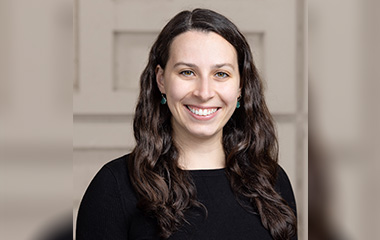
This study aims to improve access to nonpharmacological insomnia care among individuals engaged in psychotherapy for depression and/or anxiety. This study will collect feasibility and acceptability data on a novel, scalable strategy for integrating digital cognitive behavior therapy for insomnia (dCBTi) into routine psychotherapy. This approach involves training therapists to promote patient engagement with and adherence to dCBTi.

This study aims to address challenges faced by autistic adults in terms of cognition and adaptive functioning, exacerbated by the high prevalence of insomnia (~80%) among this population. Through a mixed-methods approach, we will iteratively optimize an adaptive cognitive training program for autistic adults with insomnia (COGMUSE-AUT; Stage-1). We will then pilot test (Stage-2)
COGMUSE-AUT in a sample (n=15) of autistic adults with co-occurring insomnia, assessing its impact on cognition, sleep, and daytime functioning outcomes.
2023 Focused Projects Grant for Junior Investigators Recipients

Consequences of Sleep Disturbances with Ecologically-Valid Assessment
With such high rates of mental health and sleep problems amongst college students, addressing these inter-related problems is essential. Despite extensive research on the effects of deficient sleep, we know relatively little about students’ sleep neurophysiology, especially within challenging real-world contexts (i.e., dormitories). Advancements in the assessment of sleep neurophysiology (e.g., Dreem headbands) will allow for more ecologically-valid assessments of students’ sleep and will further our understanding of the interplay between sleep and mental health.

Although benefits are evident in adults, how physical activity (PA) influences sleep quality, architecture, and pressure in early childhood is unclear. This project will determine if increasing PA impacts sleep and cognitive measures using a within-subjects design comparing a day of typical behavior to a day with enhanced PA. Overnight sleep duration will be constant. We hypothesize that enhanced PA will increase sleep pressure and slow wave sleep, and improve sleep quality and cognitive performance.

Disrupted circadian clock, such as seen in shift-workers, plays a critical role in the pathogenesis of cardiometabolic heart failure (HF). Cardiometabolic HF follows sex-specific differences, with higher prevalence in women. This proposal will uncover the sex-specific underlying mechanisms that govern the cardiometabolic-circadian crosstalk and examine novel nutritional stimulation approaches that will modulate expression of genes that control both circadian regulation and cardiometabolic response during cardiometabolic syndrome, toward developing innovative therapeutic approachs to treat cardiometabolic HF.

Infertility affects many couples, and while the exact cause of infertility is not always known, dysfunction in circadian timekeeping capacity likely plays a role in the inability to conceive. This project will examine whether time-of-day changes in sexual behavior influence reproductive success in mice and whether sexual behavior can be manipulated throughout the day to optimize fertility. Results may lay groundwork for understanding how circuits that modulate sexual behavior can be harnessed to treat infertility.

There is a critical need for a standardized measure to accurately diagnose restless legs syndrome (RLS). The mechanisms that cause RLS are not well understood, hindering the development of targeted treatment methods. The proposed project will leverage large datasets to correlate proteomic and metabolomic data and identify key biomarkers of RLS. The result of the proposed project permits the examination of mechanisms responsible for RLS and will provide a clinically available and objective measure to better diagnose RLS.
2023 Focused Projects Grant for Junior Investigators: National Sleep Research Resource Recipients
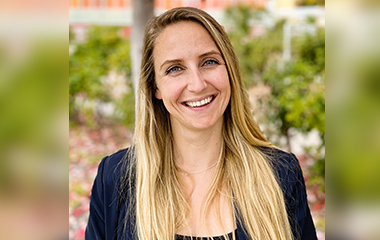
In the United States, Hispanics have a heightened risk of developing type 2 diabetes compared to non-Hispanic individuals, with inadequate sleep associated with this elevated risk. This research focuses on uncovering factors leading to sleep disruption as it relates to diabetes in the Hispanic Community Health Study. Using cutting-edge machine learning and analyses, the project aims to inform targeted interventions that improve sleep health, overall well-being, and contribute to diabetes prevention within the Hispanic community.
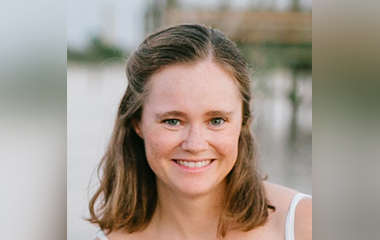
Sleep and diet both impact cardiometabolic disease risk and they seem to have bidirectional relationships with each other. However, few studies have explored associations between sleep and diet by incorporating multidimensional sleep domains, including circadian rhythm measures, nor with measures of diet timing. This study will investigate associations between objective sleep and rest-activity rhythms with both diet quality and timing in community-based observational cohorts. These findings could lead to improved interventions for cardiometabolic risk reduction.
2023 Focused Projects Grant for Junior Investigators: Management and Treatment of Sleep Apnea Recipient
This grant was made possible by ResMed

This project proposes to combine the measures of sleep apnea burden (ventilatory, hypoxic, arousal, and autonomic) using machine learning approaches to test whether a stronger association of obstructive sleep apnea (OSA) with adverse health outcomes is detected. A data-driven combination of fully automated ventilatory/hypoxic/arousal/autonomic burdens can be used to guide clinical decision making to better manage and treat apnea outcomes is a key gap that our project aims to address.
2023 Physician Scientist Training Grant Recipients

Atrial fibrillation (AF) is a common, serious arrhythmia. Obstructive sleep apnea (OSA) increases AF risk, evidenced by epidemiologic studies, but the mechanism remains unclear. We hypothesize intermittent hypoxia and autonomic stress specific to OSA convey AF risk. Therefore, this polysomnography signal processing and data science study will compute the sleep apnea-specific hypoxic burden and heart rate response and examine associations with AF retrospectively in a large clinic-based registry to deepen understanding of these underlying relationships.

The study examines 1) whether treatment for obstructive sleep apnea with continuous positive airway pressure (CPAP) therapy improves glymphatic clearance, 2) whether physiological responses to CPAP are associated with a change in glymphatic function, 3) whether CPAP improves Alzheimer’s Disease(AD)-related biomarkers. Given the proposed role that impairment of sleep-active glymphatic function plays in the development of AD biomarkers, this project expands our understanding of the link between sleep disruption and the development of AD pathology.

Sleep disturbance and metabolic dysfunction are common in older adults, yet the underlying mechanism linking these two conditions is unclear. This study will utilize data from the Baltimore Longitudinal Study of Aging (BLSA) to examine the associations of self-report and objective sleep indices with changes in adipokine levels in older adults. We hypothesize that indices of sleep disturbance are associated with lower leptin and adiponectin levels, contributing to systemic metabolic dysfunction in older adults.
2023 American Board of Sleep Medicine Junior Faculty Grant Recipients

While continuous positive airway pressure (CPAP) is the standard treatment for obstructive sleep apnea (OSA), more than half of patients struggle with it. The Swallowing in OSA & PAP intolerance (SLP-PAP) study will look for swallowing differences between people with CPAP intolerance and those who do well with the therapy. The goal is to develop novel rehabilitative strategies that will allow people who are intolerant of CPAP to be able to use it successfully.
2023 Community Sleep Health and Public Awareness Grant Recipients

Bedtime books that are specifically aimed towards the most vulnerable children do not exist. We will develop a bedtime book utilizing culturally-relevant sleep health messages and illustrations targeting disadvantaged/minority families with school-aged children in order to help address sleep health disparities. The book’s development will incorporate feedback from stakeholders including caregivers. The book will be distributed by healthcare providers in community health settings during well child visits to reinforce the relationship between sleep health and general health.

The Philips Respironics recall has largely lacked the patient voice and discussions on concrete actions needed to prevent such a recall in the future. This project by Alliance of Sleep Apnea Partners (ASAP) plans to identify and mitigate gaps within the sleep apnea patient community resulting directly from the recall of CPAP devices. ASAP will create a web-based platform with relevant policy information and tools needed for patients to better educate and advocate for themselves.

Our goal is to determine whether a tailored sleep education program delivered to congregants of predominantly African American churches improved their sleep and increased their knowledge regarding when and how to follow-up with healthcare providers. Results from this project will be used as preliminary data for grant applications to further disseminate this program. This funding also supports one of my career goals to reduce sleep health disparities within African American communities.
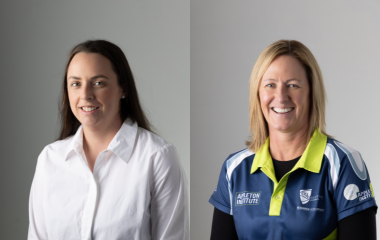
This project aims to learn effective strategies for improving sleep health among young shiftworkers by developing tailored, evidence-based resources. AASM Foundation funding will allow us to engage with various stakeholders and create relevant, accessible resources. The findings from this project will significantly contribute to our ongoing research in sleep and circadian health, ultimately enhancing our career trajectory by enabling us to make a tangible impact on shiftworker populations.
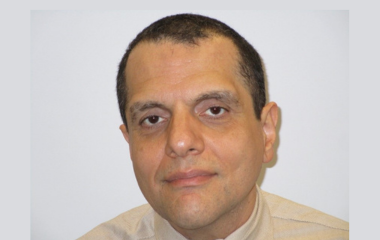
The primary goal of this project is to assess the feasibility of delivering free tele-CBT-i at Community Health to address the prevalent insomnia and sleep health among low-income, uninsured, and underinsured adults in Chicago. We are partnering with Dr. Lullaby, a digital platform featuring a team of behavioral sleep trained, licensed clinicians who provide CBT-i and other evidence-based Behavioral Sleep Medicine protocols in 36 states.
2023 Strategic Research Grant Recipients
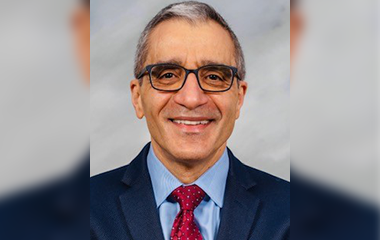
This project aims to determine whether using the AASM-recommended rule for hypopnea scoring, rather than the acceptable criteria, will enhance detection of sleep-disordered breathing (SDB) in women, and hence will reduce gender disparities in diagnoses. This is a critically significant issue that must be addressed with urgency given the known delay in the diagnosis of this condition in women. The AASM Foundation funding is critical for this understudied question. We anticipate that our findings will inform future definitive studies and provide a foundation for discussions with providers, healthcare systems, and payers to ensure that SDB is optimally diagnosed and treated in women.

We will learn whether a practical dietary intervention can be used to supplement current management strategies to enhance patient outcomes. Importantly, our qualitative analyses will give voice to patients with conditions of hypersomnolence to better understand their lived experience. As an early career researcher, the funding from the AASM Foundation will provide a platform to establish an independent line of research while allowing me to emerge as a leader in a richer diversity of behavioral interventions for sleep disorders.

Through this project, we aim to harness the potential of high-dose solriamfetol, a medication already approved for narcolepsy, to address unmet medical needs in Idiopathic Hypersomnia (IH). Evaluating its efficacy using various markers, we seek to advance IH treatment insights and patient well-being. The support of AASM Foundation and Hypersomnia Foundation enables our team to amplify our research impact as well as fostering our growth by encouraging innovation in the field of sleep research.
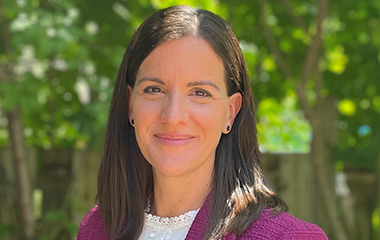
By closely working with sleep technologists and physicians to develop this new sleep analysis platform, our research team will learn to develop tools that specifically address clinical needs. Working as a multidisciplinary team will also facilitate the integration of computational and AI tools into sleep medicine practice. The support from the AASM allows for the objective to provide open-access and well-validated tools to accelerate sleep medicine discoveries.

Broad scientific consensus has called for new biomarkers for hypersomnolence disorders, which are essential to improve their diagnosis and treatment. We aim to image activity in the brain circuits responsible for sleep-wake regulation and understand how it is linked to cognitive symptoms. This project uses a noninvasive imaging tool, enabling translation to human patients. The AASM Foundation and Wake Up Narcolepsy funding is enabling us to translate our novel MRI-based tools to understand the neural basis of hypersomnolence disorders.

We hope to learn from this project how to disseminate, implement, and evaluate a therapist training program in children with autism whose families have limited access to healthcare. Our work will also be generalizable to children with a variety of other intellectual and developmental disabilities and more broadly to children of typical development. The AASM Foundation funding will support our career trajectory in advancing our experience in dissemination and implementation related to behavioral sleep education.

This project seeks to learn if a formalized patient-to-patient peer support intervention personalized for women with obstructive sleep apnea (OSA) will significantly help them to successfully begin and adhere to continuous positive airway pressure (CPAP) treatment. The AASM Foundation grant represents the next step in my research to understand and improve the treatment of women with OSA. This study will inform an NIH R01 trial to compare peer support to other modalities that promote CPAP adherence.
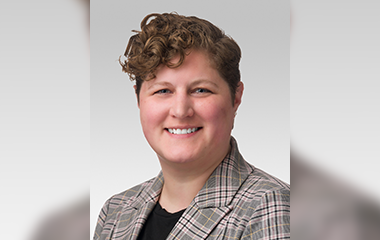
This trial will help us understand whether Imagery Rehearsal Therapy (IRT) can improve nightmares, mood, and daytime functioning for individuals with narcolepsy. Funding from the AASM Foundation for this project comes at a critical point in my career as I am pivoting from a clinical role toward a greater focus on research. This funding will allow me to continue conducting sleep research and will improve the likelihood of success with future larger grant applications.

I hope to better understand what symptoms improve in a diverse OSA population treated with CPAP and what dose is necessary to see improvements. Using this data, I will be able to test whether more liberal CPAP coverage policies will reduce disparities in OSA care. This funding support from the AASM Foundation will provide me the opportunity to shift my scientific focus and gain experience in research focused on reducing disparities in OSA care.

New information gained from this project includes: 1) identifying employer- and employee-reported barriers and facilitators to adopting evidence-based guidance, and 2) determining the impact of a novel employer-focused sleep health program on employee-reported fatigue and sleep quality. Support from the AASM Foundation will significantly expand our knowledge of fatigue and sleep health among public safety operations, enhance our capability to implement evidence-based guidance, and accelerate improvements in sleep health for safety sensitive operations.

For decades, it has been debated as to what is the most appropriate definition of hypopneas for diagnosing SBD. The overall goal of this project is to provide an evidence-based approach for defining hypopneas to guide case identification of those with sleep-disordered breathing. The AASM Foundation grant will facilitate my ability to excite regional and national investigators to collaborate in the building of the evidence that can better guide our field.

The study will further our understanding of how stress and nutrition may impact sleep in pregnancy and how this relationship is different for women from different races who may have different societal or environmental exposures. The AASM funding will help us identify new targets for multi-pronged interventions to improve sleep in pregnancy, reduce maternal perinatal complications and improve the health of the mother and her family.
AASM Foundation and CHEST Foundation Research Grant in Sleep Medicine

Dr. Kendzerska’s research is aimed at conducting a retrospective population-based study using provincial health administrative data to quantify the utility of inpatient sleep studies in Ontario. The provincial health plan reimburses both technical and clinical interpretation fees for outpatient PSG; however, it does not reimburse the in-laboratory polysomnography (PSG) technical fee to the hospital for admitted patients. Individuals with undiagnosed obstructive sleep apnea (OSA) and multimorbidity are at high risk of hospital admission. Despite the clinical importance of sleep-disordered breathing (SDB), most patients (~90%) with SDB remain undiagnosed. Among admitted patients, this diagnostic gap is even more pronounced due to the presence of symptoms and clinical findings overlapping with exacerbations of other medical conditions. These contributions are significant because, as the inpatient population is likely sicker in five years, it is anticipated this study will identify the potential for cost savings and find a subgroup of individuals who may benefit the most from an inpatient PSG.
2023 Sleep Champion Award Recipient
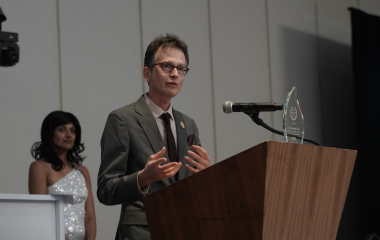
Mr. Pea was honored to receive the award stating, “Thank you for this great honor! All of us at Save Standard Time, from our board members to our volunteers and supporters, are thrilled to learn our organization was awarded the AASM Foundation’s Sleep Champion Award.”
2023-2024 SOAR Fellows
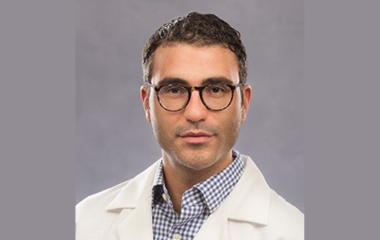
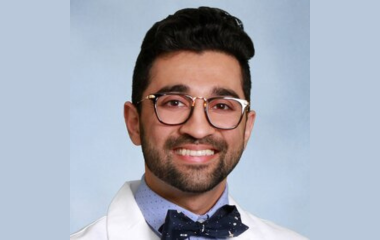
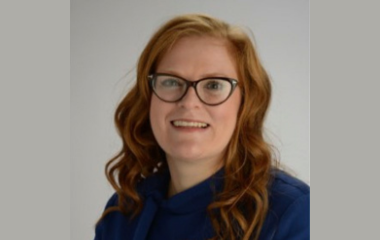

2023 Sleep Research Society Foundation Small Research Grant Recipients



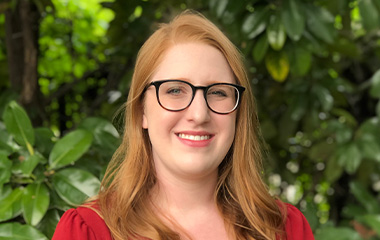
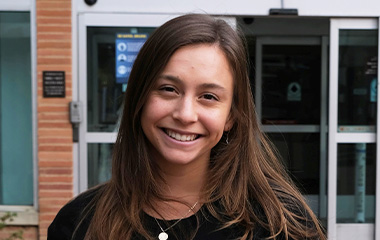

2023 AMA Foundation Physicians of Tomorrow Scholarship Recipients





